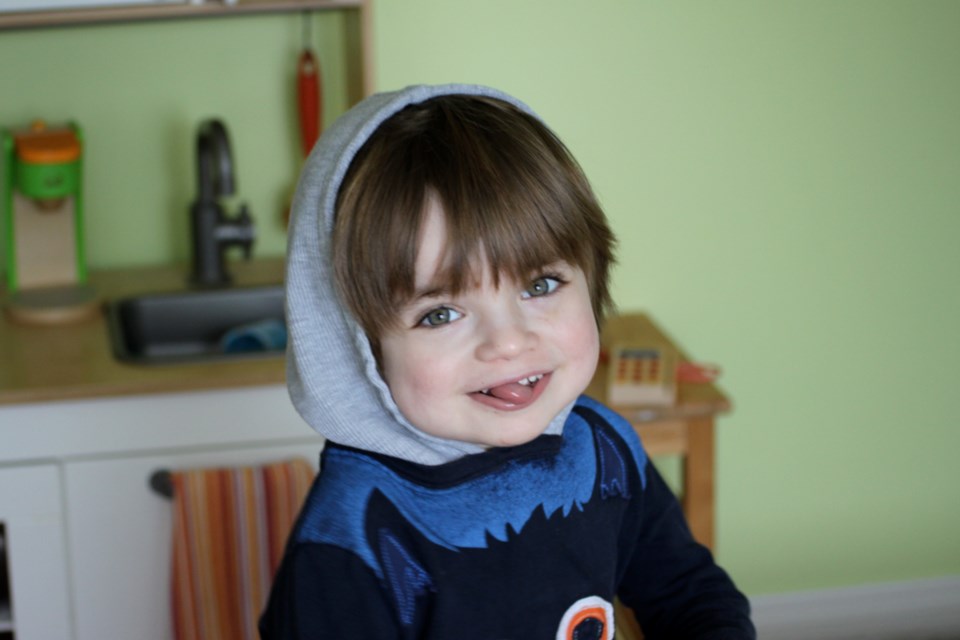What is Autism?
Autism is a term often used to describe Autistic Disorder but is also a generalization for five associated Autism Spectrum Disorders including: Childhood Disintegrative Disorder (CDD), Rett’s Disorder (RD), Autistic Disorder (AD), Pervasive Developmental Disorder--Not Otherwise Specified (PDD-NOS), and Asperger’s Syndrome (AS). Beyond this array of diagnoses, there are many different ways this neurological disorder presents itself. The term “spectrum” refers to the varying severity of developmental impairment. Children with Autism often have difficulty communicating, seem difficult to reach, experience sensory-processing difficulties, have trouble relating to other kids and socializing, and behave in unusual or ritualistic ways.
The current statistics show that about 1 in every 150 Canadians is affected by Autism Spectrum Disorders. ASD is four to five times more common in boys than girls, and it is currently believed to affect 1 in every 54 boys. There has been an 80 percent increase in the last seven years!
There’s an expression in the Autism community I’ve come to know: If you’ve met one kid with Autism, you’ve met one kid with Autism.
This can certainly make it a difficult condition to describe as there are some common attributes but no generalizations. What I can do is share a little with you about my family’s journey with Autism.
One month after moving to Bowen Island with my husband and two boys, my youngest, Arrian, was diagnosed with Autism. My husband will tell you Ari has “Arrianism” and if you have the pleasure to get to know Ari you will quickly see that he marches to his own drummer.
Ari is non-verbal, so his only means of communication is through behaviour. This might not sound alarming to you, but if you were to try to get about your day using only pointing, pushing, and screaming, people might mistake you for an overgrown two-year-old or, worse yet, a brat!
Ari is four years old now and desires nothing less than to get in someone’s way or be the cause of any distress. He’s a gentle soul who loves long walks in the woods, high-performance cars, classical music, fine art, and the alphabet. When he was two years old, he created a series of more than 100 paintings that got him some international recognition and an appearance in the journal Scientific American Mind.
I had hoped that our move to Bowen would reduce much of the overstimulation of the city and allow Ari to be himself in a less pressured environment. It has made a world of difference in so many ways! It’s the little things like taking extra time with transitions and not having someone waiting for our parking space, not to mention the 40 kilometre per hour speed limit!
There has also been a wonderful shift to friendly waves and supportive smiles instead of piercing stares and judgmental comments he and I often received in the big, anonymous city. Sometimes things get intense, and subtle everyday changes and transitions can trigger acute distress in Ari and he might melt down or even enter into “fight or flight” mode. The bulk of his consultant-guided, parent-implemented therapy is getting practice doing everyday things.
By getting out into the community, Ari learns to self-regulate in dynamic situations as well as create positive episodic memories that will help in in the future. He loves to go out to all of Bowen’s cafés and restaurants and have a little sit down and a snack. Please don’t be alarmed if he eats his ice cream upside down. Sometimes the challenge of eating ice cream cone-first is more exciting than eating the ice cream itself. If you don’t believe him just try it! Often if I just take a moment to try to see things his way, I see more beauty in his unique perspective than I could’ve imagined, like how he finds the most remarkable trickles of light through obscure spaces in trees. My advocacy in raising awareness isn’t in search of a cure or an outreach for help; it’s simply to ask that you are patient with Ari as he navigates his new community and to help him to feel safe. I wouldn’t change him for the world but I’ll do everything I can to change the world for him.



